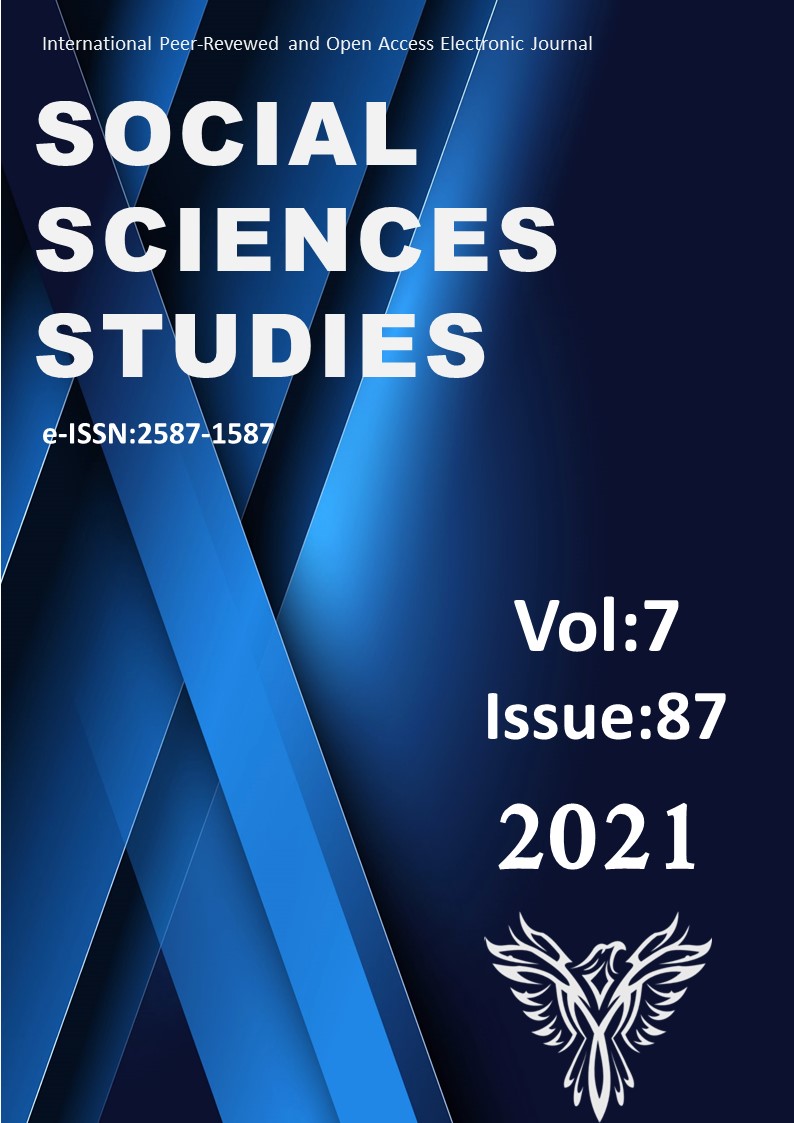Author :
Abstract
Dünya genelini etkileyen büyük olayların sonrasında yeni bir düzen kurulur ve aktörler değişir. Birinci Dünya Savaşı da kendinden sonra yeni bir düzeni beraberinde getirmiş, imparatorluklar yıkılmış, Avrupa’daki aktörler değişmiştir. Rusya’da ihtilal olmuş ve Çarlık Rusya yerini Bolşevik Rusya’ya bırakmış, Almanya yenilmiş, Wersailles Anlaşması ile kontrol altına alınmıştı. Osmanlı Devleti savaştan yenik ayrılarak ömrünü tamamlamış, yerini ulusal ve cumhuriyet rejimi ile yönetilen Türkiye’ye bırakmıştı. Diğer taraftan savaşın galipleri arasında olan İngiltere ve Fransa statükoya yön veren ülkeler halini alırken, İtalya’da faşist bir sistem ile yönetilmeye başlamış ve dış politikada saldırgan bir tutum sergiliyordu. Almanya’da Nazi Partisi ve statükonun değişmesinden yana olan Adolf Hitler’in başa geçmesinden sonra Avrupa’da meydana gelen hızlı değişim, dünyayı yeni bir savaşın eşiğine getirmişti. Bu ani değişimler ise, daha önceki devlet arası ilişkilerde de birtakım değişiklikleri berberinde getirdi. İkinci Dünya Savaşı ve bu savaşın ilişkilere etkisinin sonucu olarak, Türkiye’nin Sovyetlerle ve Batılı devletler olan ilişkilerini yeni bir boyuta taşımıştır. Güvenliğini garanti altına almak ve savaştan olabildiğince az etkilenmek isteyen Türkiye, meydana gelen olayların etkisine göre devletlerle olan ilişkilerini revize etmişti. Türkiye’nin dış politikasına yön veren gelişmelerden biri de İngiltere ve Fransa ile Ankara’da imzaladığı ittifaktı. Türkiye, coğrafi konumu sebebiyle, kurduğu ittifaklarda hassas bir denge izlemek mecburiyetinde kalmıştır. Özellikle Sovyet Rusya’nın Türkiye’ye karşı tavrının değişmesi, Türkiye’yi İngiltere ve Fransa ile imzaladığı ittifaka mecbur etmişti. Bu sürecin bir etkisi de Türk basını üzerine olmuş, hükümet basını bir araç olarak kullanmıştır. 19 Ekim 1939 tarihinde Ankara’da Türk-İngiliz-Fransız İttifakı imzalanmasına karşın, başta Sovyet Rusya olmak üzere diğer ülkelerin de tepkisini çekmemek için, hükümet bu ittifakın içeriği ve sonuçları hakkında iyimser öngörü konusunda basını devreye sokmuştur. Çalışmamızda; İkinci Dünya Savaşı şartlarının zorlaması ile imzalanan Türk-İngiliz-Fransız İttifakının dönemin basınında nasıl ele alındığı, diğer ülkelere karşı bu ittifakın amacının iyimser yanını göstermek için basının nasıl kullanılmaya çalışıldığını göstermeye çalışacağız.
Keywords
Abstract
After major events affecting the whole world, a new order is established and actors change. The First World War also brought a new order after itself, empires collapsed and actors in Europe changed. A revolution took place in Russia and Tsarist Russia was replaced by Bolshevik Russia, Germany was defeated and was taken under control with the Treaty of Wersailles. The Ottoman Empire had lost the war and completed its life, leaving its place to Turkey, which was governed by a national and republican regime. On the other hand, while England and France, who were among the victors of the war, became the countries that steer the status quo, Italy began to be governed by a fascist system and displayed an aggressive attitude in foreign policy. The rapid change that took place in Europe after Adolf Hitler, who was in favor of changing the status quo, brought the world to the brink of a new war. These sudden changes brought some changes in the previous relations between the states. As a result of the Second World War and the effect of this war on relations, Turkey’s relations with the Soviets and Western states have moved to a new dimension. Turkey, which wanted to guarantee its security and be affected by the war as little as possible, revised its relations with the states according to the effects of the events that took place. One of the developments shaping Turkey's foreign policy was the alliance signed in Ankara with England and France. Due to its geographical location, Turkey had to follow a delicate balance in the alliances it established. In particular, the change in Soviet Russia's attitude towards Turkey forced Turkey into an alliance with England and France. One of the effects of this process was on the Turkish press, and the government used the press as a tool. Despite the signing of the Turkish-British-French Alliance in Ankara on October 19, 1939, in order not to attract the reaction of other countries, especially Soviet Russia, the government activated the press about the optimistic forecast about the content and results of this alliance. In our study; we will try to show how the Turkish-British-French Alliance, which was signed under the force of the Second World War conditions, was handled in the press of the period, and how the press was tried to be used to show the good side of the purpose of this alliance against other countries.





